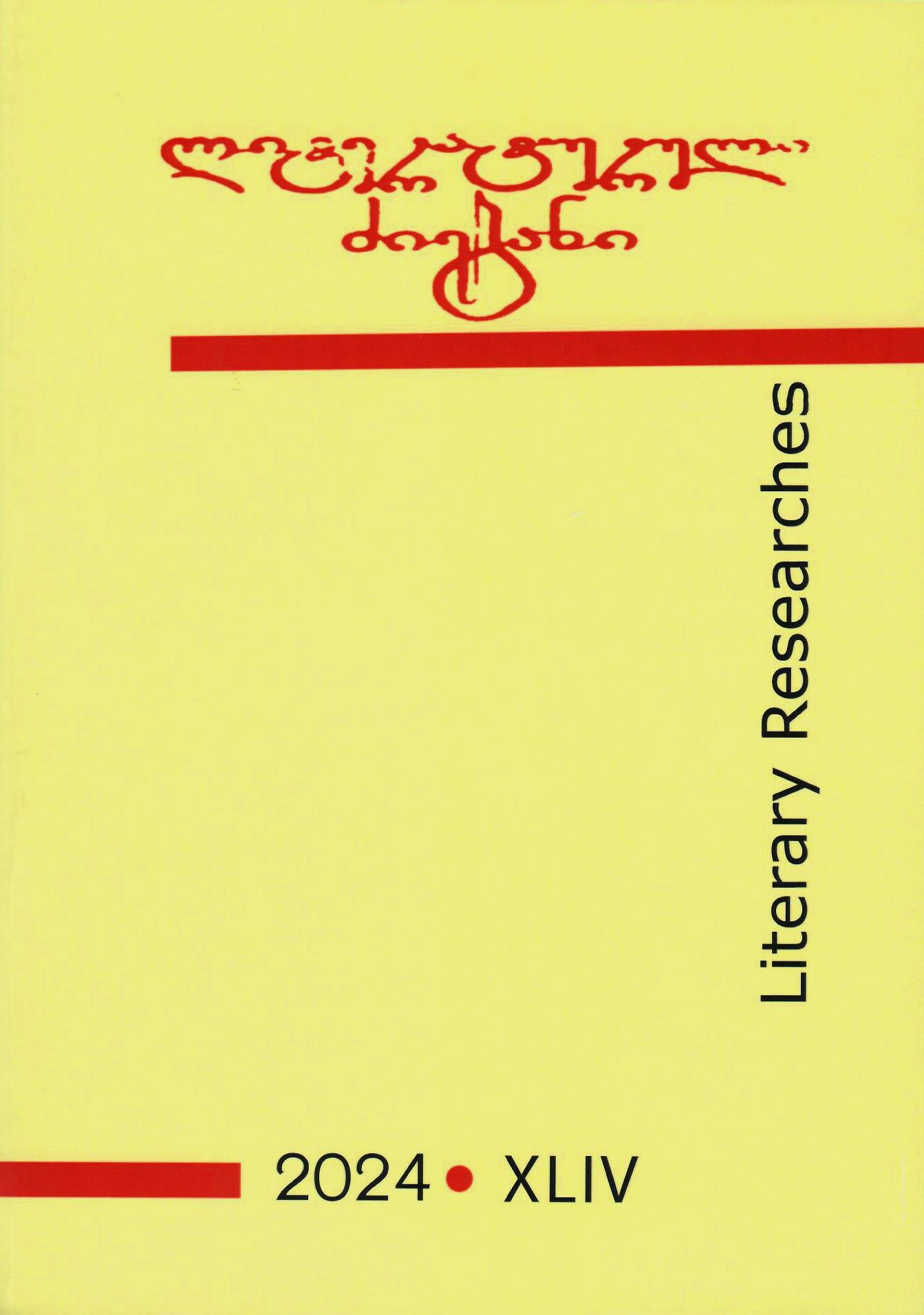გამოქვეყნებული 2024-11-27
საკვანძო სიტყვები
- ალექსანდრე ორბელიანი,
- მხატვრული შემოქმედება,
- ბიოგრაფია,
- გადასახლება,
- მინაწერები
როგორ უნდა ციტირება
ანოტაცია
Giorgi Leonidze, a poet and public figure, claimed that a writer’s private life serves as the basis for his creative work. The biographies of numerous classic writers confirm this statement. Generally, this theme in literature – the issue of the relationship between biography and creativity – is not only fascinating, but also helps to resolve some problematic points in the writer's life and creativity. A notable example of this is A. Kazbegi, whose writings contain facts from his personal life that attest to his authorship.
The biography also had a great influence on A. Orbeliani’s creativity too. This study examines the writer’s works, which reflect the turbulent moments of his private life and contain the author’s inscriptions. It can be safely said that poetry depicting a biography in this way is rare in Georgian literature. Almost every poem is accompanied by an inscription indicating where, when, why and how the work was written. Thus, the researcher can reconstruct not only interesting details of the writer's biography, but also the creative process behind his works.
Despite being exiled to Orenburg for participating in the 1832 conspiracy, the writer did not cease his literary activities creating works in multiple genres. This study analyzes the poems written during his imprisonment, such as, „Captured in Darkness“, „From Afar“, „Unfortunate since Childhood“, „The Caucasus Mountains from Mount Mashuk“, etc. In terms of artistic value, the inscriptions are on par with the pieces themselves. For instance, the inscription „Unfortunate since childhood“ reads as follows: „On April 13, 1835, in the new Aleksandrov fortress, at Kaidak Bay, at the mouth of the Caspian Sea“. Although the information is accurate, the author’s mood is not entirely conveyed. In light of this, the following was written in pencil: „I wrote the above verse out of heightened concern“. This final line of the inscription corresponds to the content of the poem. Another noteworthy inscription for the poem „Unexpected Encounter“ is: „It was a slight drizzle, and as soon as I got home I wrote this verse“.
The paper also discusses A. Orbeliani's poems, dedicated to his wife Ekaterine Baratashvili: „Baiati“, „Unexpected Encounter“, „Teklishi“ and other pieces, which are accompanied by inscriptions showing intense impression, which are the best material for studying the writer's lyric biography.
The writer did not neglect his children in his poetry. The poem „Unfortunate Maiko (Mariam)“ is especially interesting since it reflects the most painful period of the poet’s biography – the shock caused by the death of his son.
There are also many biographical elements in the writer’s plays and prose. In this regard, the play „Roman Woman Aaria“ dedicated to his mother, Tekle Batonishvili, the beloved daughter of Erekle II, is particularly notable. The prototype of the main character is the daughter of King Erekle. The play clearly characterizes Batonishvili Tekle’s strong character, as confirmed by the author’s inscription.
In A. Orbeliani’s artistic works, one can endlessly find reflections of his biography. This is an inexhaustible topic, because the writer worked on the important events of his life artistically and wrote inscriptions, which provided an invaluable service for clarifying and analyzing many issues of his work. Based on the reviewed material, we can conclude that the poet left us a biography transformed into poetry.

